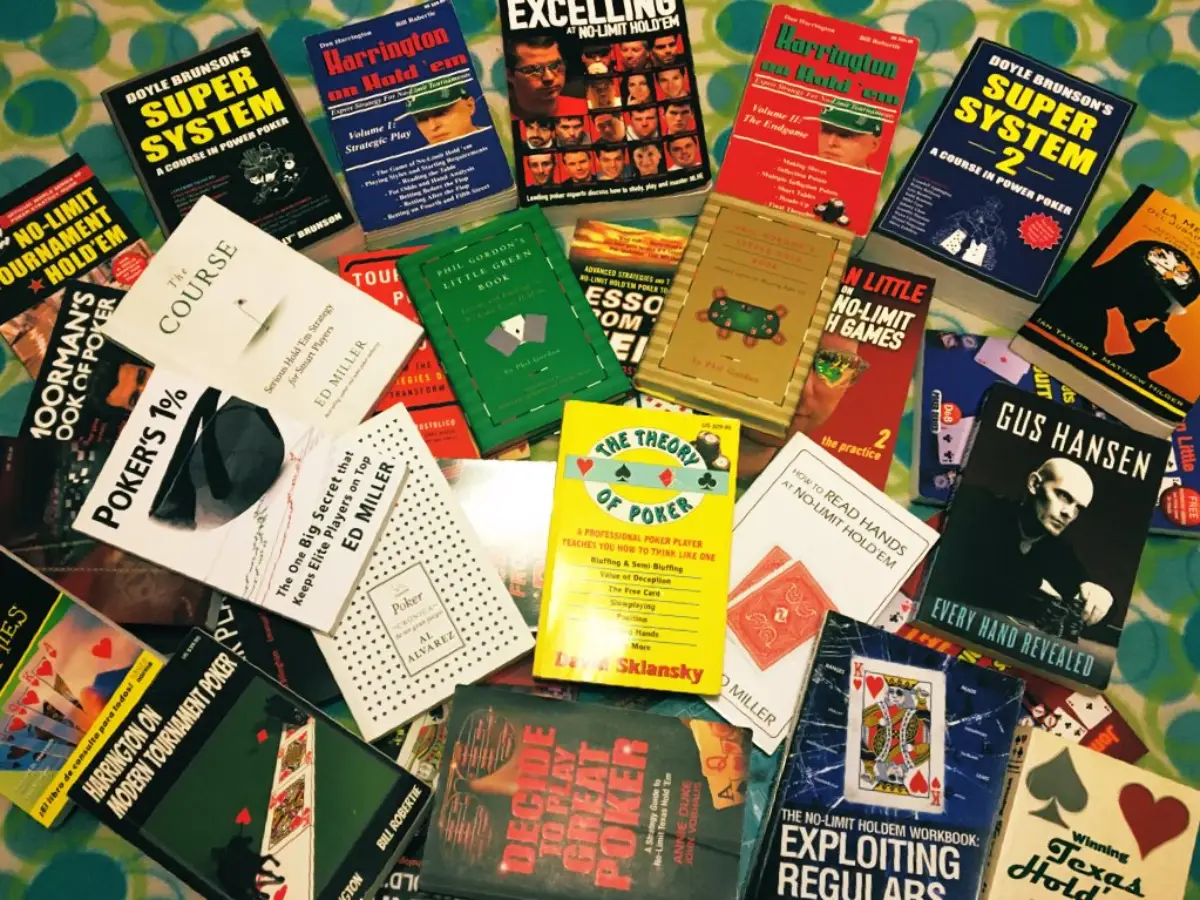Introduction to Poker Literature: Best Poker Books For Improving Your Game
Best poker books for improving your game – Reading poker books is a vital component for players who want to enhance their skills and elevate their game. Just like any other sport or skill, understanding the strategies, tactics, and psychology behind poker can significantly boost a player’s performance. Poker literature is not just filled with theoretical knowledge; it also offers practical insights that can transform a novice into a competent player.
The world of poker education has evolved over the years, with books playing a crucial role in disseminating knowledge. From early publications that laid the groundwork for poker strategy to modern texts that delve deeper into specific game types, the literature has consistently provided players with tools for strategic thinking and improved decision-making.
Top Recommended Poker Books, Best poker books for improving your game
There are numerous poker books on the market, catering to both beginners and advanced players. Here’s a curated list of some top recommendations that can greatly benefit your poker journey:
- The Theory of Poker by David Sklansky
-This classic book covers fundamental concepts such as pot odds, implied odds, and expected value, making it essential for any serious player. - Harrington on Hold’em by Dan Harrington
-Perfect for beginners, it introduces tournament strategies and essential skills for playing Texas Hold’em. - Winning Poker Tournaments One Hand at a Time by Eric Lynch, Jon Turner, and David E. “Chip” Jett
-An advanced text focusing on specific strategies for tournament play. - Small Stakes Hold’em by Ed Miller
-This book emphasizes strategies for low-stakes cash games, providing insights on optimal play against typical opponents. - Omaha Poker by Bob Ciaffone
-An essential guide for players looking to master Omaha, covering both theory and practical play.
Each book comes with its unique insights and strategies that cater to different game types, ensuring players can find the right resource that matches their interests and skill levels.
Learning from Poker Books
Effective learning from poker literature is not just about reading; it’s about engaging with the material. Here are some methods to enhance your learning experience:
Note-Taking Techniques
While reading, jot down key concepts, strategies, and personal reflections. This active engagement helps solidify your understanding of the material.
Step-by-Step Application
After reading a chapter or section, take the time to apply what you’ve learned in live games. Create a plan for how to implement new strategies and track their effectiveness.
Identifying Personal Strategies
Experiment with different approaches suggested in the books. Pay close attention to what aligns with your playing style and adapt strategies that feel natural to you.
Author Insights and Contributions
Several influential authors have shaped the landscape of poker literature. Notable figures include David Sklansky, who introduced many strategic concepts still used today, and Dan Harrington, whose tournament strategies are regarded as foundational.
“The most important thing to know about poker is that it is a game of incomplete information.”
David Sklansky
This quote encapsulates the essence of poker strategy, emphasizing the need for players to make informed decisions despite uncertainties. Each poker author has their unique teaching style, from Sklansky’s analytical approach to Harrington’s practical application, offering diverse perspectives that enrich a player’s understanding.
Online Resources vs. Books
While online resources are abundant, traditional poker books hold distinct advantages. Books provide a structured approach to learning, allowing for in-depth exploration of concepts without the distraction of advertisements or endless scrolling.In contrast, online content can supplement book learning in certain situations, especially for current trends or strategies that evolve quickly. Here’s a comparative overview:
| Aspect | Books | Online Resources |
|---|---|---|
| Depth of Content | In-depth analysis and structured learning | Often surface-level insights; quick updates |
| Distraction Level | Focused reading experience | Potential distractions from ads and links |
| Accessibility | Requires purchase or library access | Readily available with internet access |
Both formats have their merits, and a balanced approach that incorporates both can be beneficial for players.
Book Club and Discussion Groups

Establishing a poker book club can enhance the learning experience through collaborative discussions. Here’s a simple framework to get started:
1. Group Formation
Gather a group of interested players, ideally with a mix of skill levels to encourage diverse perspectives.
2. Book Selection
Choose a book or a rotation of books to discuss each month.
3. Discussion Topics
Prepare questions or themes to guide discussions, such as key strategies, character motivations in poker narratives, or personal reflections on the content.Collaborative learning through a book club can lead to deeper insights, improving players’ understanding as they share experiences and interpretations of the material.
Ongoing Education in Poker
A personal study plan is essential for continuous growth in poker. Incorporating books, practice sessions, and other resources can keep your knowledge fresh:
1. Regular Reading Schedule
Dedicate time each week to read poker literature, aiming to finish one book per month.
2. Practice Integration
Set specific practice sessions focused on implementing strategies learned from your readings.
3. Stay Updated
Follow poker news, subscribe to newsletters, and engage with new literature emerging in the field.In addition to books, consider podcasts and instructional videos as valuable resources for ongoing education. They often provide insights from professionals and can cover current trends in the game.
Impact of Reading on Game Psychology
Poker is as much a mental game as it is about strategy. Literature provides insights into psychological aspects, teaching players how to maintain emotional control and resilience. Books like “The Mental Game of Poker” by Jared Tendler delve into the mental challenges faced by players, offering exercises to strengthen psychological endurance.
“To succeed at poker, you must learn to separate your emotions from your decisions.”Jared Tendler
This emphasis on emotional discipline is crucial for maintaining focus and making sound decisions during play. Exercises such as mindfulness practices can also be beneficial in building psychological resilience.
